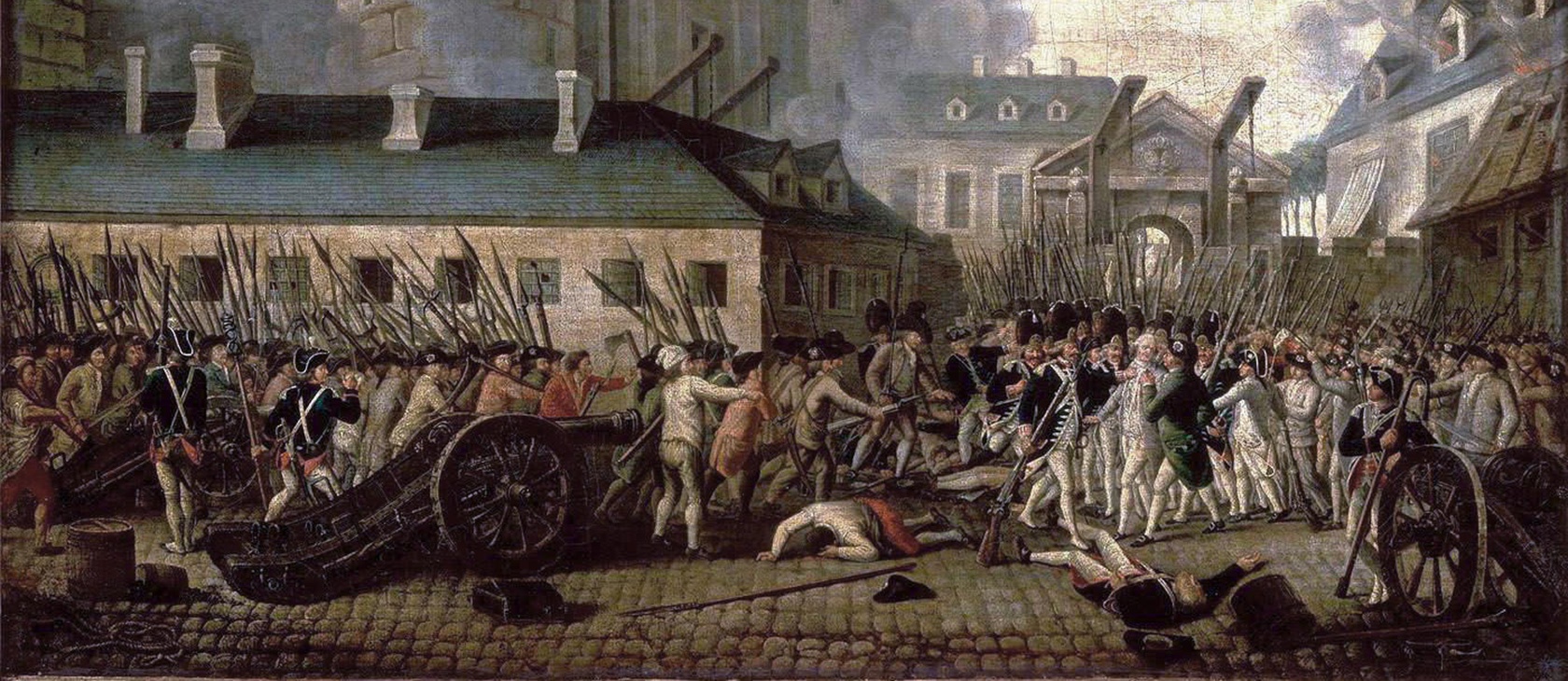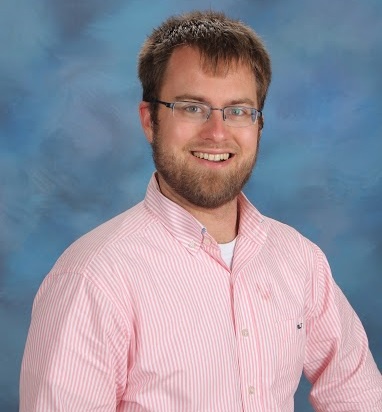In 1791, Edmund Burke published his Reflections on the Revolution in France. In the process of condemning the French Revolution, Burke articulated a defense of traditional life which can equip classical educators with a vocabulary to philosophically ground their educational endeavors. While classical education has exploded in recent decades, this movement of diverse schools lacks a philosophical figure who centers the goals of classical education; Edmund Burke could fill that need. Burke was a minority figure in his own day, speaking truth in opposition to those who praised the revolution. Classical education is also a minority movement in the Western world today. While writing about his own world at the turn towards modernity in France, Burke suggests three principles which are relevant to the task of classical education in the twenty-first century.
Principle 1: Our way of life is worth preserving
The century before the French Revolution, many philosophes (French intellectuals) argued that French civilization was so irrational and choked with superstitions that the only solution was to destroy it. Such destruction would create a tabula rasa, a blank slate, upon which the philosophes could create a new rational society. Burke watched as the National Assembly attempted to put this program in action, and he was appalled. His shock caused him to mount a defense for the English way of life. Burke argued that patterns of life developed slowly, over centuries, and survived because they resonated with multiple generations. Destroying the traditional way of life cut the present off from the collective wisdom of those who had gone before. Speaking to the French political leaders, Burke writes:
You had all these advantages in your ancient states, but you chose to act as if you had never been moulded into civil society, and had everything to begin anew. You began ill, because you began by despising everything that belonged to you. You set up your trade without a capital. ... Respecting your forefathers, you would have been taught to respect yourselves. (p. 36.)
Burke indicts the French on two counts: In rejecting their own civilization, they descend to barbarity. By cutting themselves off from the past, they severed their source of self-respect. Without the “capital” to enable success, this new experiment resembles a business doomed to fail.
In the twenty-first century, a traditional view of life is continually under attack by those who would replace tradition with untried notions – in education, politics, gender, etc. Classical educators are committed to receiving a certain body of knowledge and passing it on to the next generation. We seek not to overturn civilization but to cherish it. Our way of life is worth preserving, and Burke reminds us that preserving the traditional understanding of human life is a worthwhile task.
Principle 2: Love begins small
The National Assembly espoused a grand vision. One of the first documents they passed declared the “Universal Rights of Man.” This document affirmed many rights, including the right to property, personal security, the right to free speech, the right to religious liberty, and so on. Burke observed that the National Assembly proclaimed these rights for the broad universal “mankind” but ignored them in particular cases. He pointed to the seizure of Church property, the arrest and beheading of King Louis XVI, the stripping of rights from the nobility as examples of contradiction. As the revolution progressed, the group in power ignored the rights of those it disliked. For Burke, this phenomenon illustrates the philosophes’ misunderstanding of how humans actually function. Rather than embracing a universal principle and then applying it specifically, Burke argues that human beings function in the opposite way: we learn through particular cases, and over time our vision rises to the universal. Burke writes:
To be attached to the subdivision, to love the little platoon we belong to in society, is the first principle (the germ as it were) of public affections. It is the first link in the series by which we proceed towards a love to our country and to mankind. (p. 47.)
Love does not begin with the “great unwashed masses” but with one’s neighbor. Because of that small love, our compassion extends to the broad idiosyncrasies of a people-group. But it does not necessarily work the other way around. This confusion of the universal and the particular, Burke thought, lay at the root of what went wrong in the French Revolution.
Classical educators enable students’ growth in love. Students come to our schools and spend years in “little platoons” where they learn habits of good conduct and charity towards particular people in their classes. Teachers get to know particular students’ strengths and weaknesses. The school becomes the place where students learn to live with people who are different from themselves. They are guided and shaped, protected from their own ignorance as they cultivate the habits that will allow them to move into larger circles of human interaction. In the school, the student learns to love other human beings; from there he can build to a love of mankind.
Principle 3: Humanities education forms the moral imagination
The philosophes envisioned a society of rational harmony governed by scientific processes. In attempting to make France into such an image, Burke argued that these political leaders lost sight of what he called the “moral imagination.” For Burke, life must move beyond survival to include that which allows humans to flourish. Education gives people not just a set of skills by which they earn money, but equips them with visions of living well. This “moral imagination” is the quality of thought which allows people to understand fellow human beings within commonly accepted narratives of society. Burke at this point is not asking the question of whether those narratives are true but arguing that, without these narratives, society becomes harsh; the operations of justice become nothing the exercise of power upon the powerless. In what might be the most famous passage in the Reflections, Burke writes:
But now all is to be changed. All the pleasing illusions, which made power gentle, and obedience liberal, which harmonized the different shades of life, and which, by a bland assimilation, incorporated into politics the sentiments which beautify and soften private society, are to be dissolved by this new conquering empire of light and reason. All the decent drapery of life is to be rudely torn off. All the superadded ideas, furnished from the wardrobe of a moral imagination, which the heart owns, and the understanding ratifies, as necessary to cover the defects of our naked shivering nature, and to raise it to dignity in our own estimation, are to be exploded as a ridiculous, absurd, and antiquated fashion. (p. 77.)
An example contrasting the absence and the presence of this “moral imagination” will help clarify this concept. Imagine I was pulled over for speeding. The officer asks, “May I have your license and registration?” In the absence of a moral imagination, my thoughts shrink to fear and personal advantage: The officer has a gun, the power to write a ticket I must pay, and the ability to summon additional officers. Were I to resist, I would incur both physical harm and a higher fine.
But if I have the “moral imagination” Burke describes, the officer is not just a threat to my safety, but a representative of duly delegated authority. My obedience is not just preserving my physical safety, but also affirming the rule of law, combatting anarchy, and affirming social order. This kind of narrative is what Burke means by the “pleasing illusions which made power gentle and obedience liberal,” and it is directly connected to education.
This cultivation of the moral imagination justifies humanities education. We do not read great books, historical documents, or philosophical treatises to remake society into something new but to cultivate within our students (and ourselves) visions of other possible ways of living. We walk around in other characters’ skins for a time when we sink into a Dickens’ novel; we envision life in the Thirty Years War through a soldier’s journal; we weigh the implications of doubt when we work through Descartes’ Meditations. This kind of education forms within our students a thick web of ideas, concepts, and narratives giving rise to a moral imagination capable of perceiving the dignity of the human person and the elements of a worthy civilization. Such an education is the provenance of classical education, with its careful attention to the best of what has been thought and taught across human history. Only through exposure to what Richard Gamble called “the Great Tradition” does the student complete his formal education equipped with this “moral imagination.”
Conclusion
Modernity suffers from the same sin as the philosophes: a prideful rejection of all that has gone before. Such a pride asserts that human beings living today can judge the world and remake it, correctly foreseeing and correcting for all possible problems. Such hubris leads only to unforeseen complications. In contrast to prideful modernity, classical education asserts the value of humility. We view Socrates as hero, because he was the first to locate wisdom in acknowledging how little we know for certain and how much we still have to learn. This humility stands in stark contrast to the pride of a materialistic, technological society that is swiftly losing the ability to see what it has lost. Contemporary America and Europe look rather like Burke’s shopkeepers who have set up “trade without capital.” Classical education is at its core a renewal movement, seeking not to abandon the contemporary world for a Rod Dreher-style Benedict Option, but to remind the present that the real truths of humanity remain accessible and beneficial. Edmund Burke best articulated this view in his historical moment, and his voice resonates with the potential to philosophically center the efforts of contemporary classical education.
A version of this article was originally presented as a paper at the Second Annual Luddy Classical Schools Conference in Rolesville, NC on October 6, 2017. All quotes are from the Oxford World Classics edition of Burke’s Reflections.




